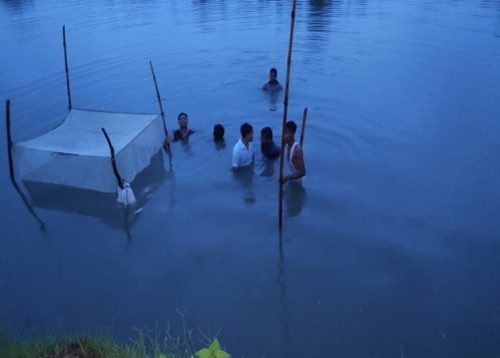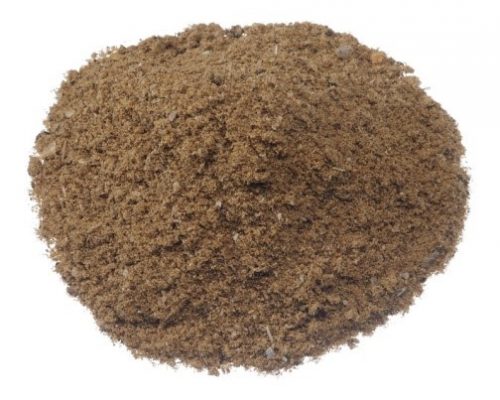Preservation of Aquatic Ecosystems
The School of Fisheries at Centurion University of Technology and Management is actively involved in the development and promotion of sustainable fisheries and aquaculture technologies, with a strong emphasis on conserving and responsibly utilizing aquatic resources. Their efforts directly contribute to the prevention and reduction of harm to aquatic ecosystems, and here are some key activities:
- Captive Breeding of Indian Major Carp:
The school is dedicated to the captive breeding of native fish species since June 2022, particularly Indian Major Carp in Circular Carp Hatchery Unit (CIFA- Model). This practice is essential for restoring wild populations and safeguarding endangered fish species. It involves breeding these fish in controlled environments using wild fish parents. These endeavors play a critical role in preserving the biodiversity of aquatic ecosystems and averting the decline of these species.
Figure: Captive Breeding
- Fish Waste Utilization:
With the increasing global production of fish, there is a growing amount of waste generated in the form of non-edible fish parts. The school acknowledges the importance of recycling these byproducts to both add value to waste and reduce environmental pollution. By converting fish waste into valuable products such as fish silage, they mitigate the environmental impact of discarded materials. This practice significantly contributes to the prevention of damage to ecosystems.
- Fish Meal Production:
Fish meal is a highly nutritious ingredient used in animal diets, particularly in domestic animal feed. Traditionally, it is produced from small marine fish and contains essential nutrients. By producing fish meal from seafood byproducts, the school promotes resource efficiency and the sustainable use of fishery resources. This reduces the need to catch additional fish for the same purpose, ultimately aiding in the preservation of aquatic ecosystems.
Figure: Fish Meal Prepared by CUTM
These initiatives underscore the School’s strong commitment to sustainable practices in fisheries and aquaculture. Through collaboration with organizations like ICAR-Central Institute of Fisheries Education, they further enhance their research and knowledge dissemination efforts. Ultimately, their work contributes to the protection of aquatic ecosystems and the responsible utilization of aquatic resources.

